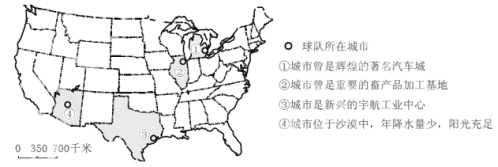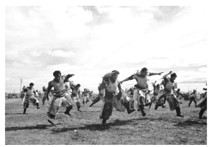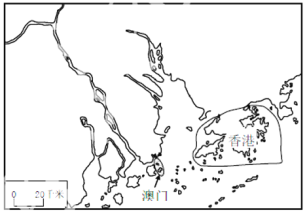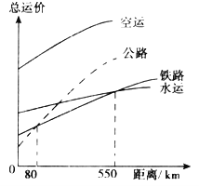
����Ŀ�� ����ְҵ������һЩ��ӵ��������뵱�ص���Ȼ����������ũҵ������ɫ��һ������ϵ����̫���ӡ������ӡ���ţ�Ӻͻ���ӡ�����ʮ����������ְҵ������������������ȫ��ֱ������ͼʾ����������������ǰ����֧������ڳ���λ�á�
�ݴ��������С�⡣

��1������ʮ����������ְҵ�������ܹ�����ȫ��ֱ������Ҫ������
A.��Ӱ�����ķ�չB.���ӻ����켼���ķ�չ
C.ͨѶ�����ķ�չD.��������켼���ķ�չ
��2����������ڳ��ж�Ӧͼ�е�
A.�ٳ���B.�ڳ���
C.�۳���D.�ܳ���
��3����ӴӢٳ��г����ɻ�ǰ���ܳ��б������ɻ������庽�з��������
A.����������B.�Զ���������
C.��������D.�Զ���������
���𰸡�
��1��C
��2��C
��3��D
��������
��1������ʮ����������ְҵ�������ܹ�����ȫ��ֱ������Ҫ������ͨѶ�����ķ�չ��ͨѶ�����ͽ�ͨ�ķ�չ��ʹ�������֮��Ľ���Խ��Խ��������ѡC��
��2����������ڳ���Ϊ��˹�٣���Ӧͼ�еĢ۳��У�λ�������ϲ��غ���������������ĺ�ʯ�����ģ���ѡC��
��3�����ݡ��ϱ����ϣ������Ҷ����жϷ����ڢٵ����Ϸ��������ӴӢٳ��г����ɻ�ǰ���ܳ��б������ɻ������庽�з���������Զ��������ϣ���ѡD��



| �꼶 | ���пγ� | �꼶 | ���пγ� |
| ��һ | ��һ��ѿγ��Ƽ��� | ��һ | ��һ��ѿγ��Ƽ��� |
| �߶� | �߶���ѿγ��Ƽ��� | ���� | ������ѿγ��Ƽ��� |
| ���� | ������ѿγ��Ƽ��� | ���� | ������ѿγ��Ƽ��� |
��Ŀ�����е��� ��Դ�� ���ͣ�
����Ŀ�������й����ܱߵ�����ͼ���������ش����⡣

��1��ͼ�У���ĸA�� �����ң���B�� �����ң��� C�� �����ң���
��2��ͼ�У����֢��� ���������� ������
��3��ͼ�У����� ��ɽ����������_ ��ɽ������
��4���������ƺӵķ�Դ�����ڵ�ʡ����λ�� ��ԭ
��5��ͼ�У����ع��߹������� ��ʡ��������λ������� ʡ��
�鿴�𰸺ͽ���>>
��Ŀ�����е��� ��Դ�� ���ͣ�
����Ŀ������ɽ���������һ�µ�һ���� ( )
����ɽ ����̨��ɽ�� ��������ɽ ��������ɽ �������롡 ����ɽ
A. �٢ڢ� B. �٢ܢ� C. �ڢۢ� D. �ۢܢ�
�鿴�𰸺ͽ���>>
��Ŀ�����е��� ��Դ�� ���ͣ�
����Ŀ��ͼΪ��ij��������Ľ���������ͼ������и��⡣

��1��ͼ�о��۷�ӳ�����ҹ��ĸ���������
A������ B���ɹ��� C�������� D������
��2�������ҹ������������ȷ����
A���ҹ���55����������
B������������Ҫ�ֲ��ڶ�������
C���ҹ�����ķֲ��ص�������۾ӡ�С�Ӿӡ������Ӿ���
D���ҹ��˿��������������ǻ���
�鿴�𰸺ͽ���>>
��Ŀ�����е��� ��Դ�� ���ͣ�
����Ŀ��̨����������ʫ������������ڡ���һʫ��д�������������ڣ������һ��dzdz�ĺ�Ͽ��������ͷ����½����ͷ����ʫ�еġ���Ͽ����ָ��������
A. ���ݺ�Ͽ B. ����ľ�Ⱥ�Ͽ C. ̨�庣Ͽ D. Īɣ�ȿ˺�Ͽ
�鿴�𰸺ͽ���>>
��Ŀ�����е��� ��Դ�� ���ͣ�
����Ŀ�� ��ۡ������˿ڳ��ܣ������Դ�ѷ��������������Ʒ�չ���á���������������ĺ�������ʿ�����ȡ��������С����ϻ���֮�ƣ������ڶࡣ
�ݴ��������С�⡣

��1����ۡ�����������Ҫ��ҵ��ͬ����
A.������ҵB.������ҵ
C.����ҵD.ʯ�Ͳ�ҵ
��2����ۡ����ų�������һֱ�����½���乲ͬԭ����
A.��������B.��ͨ����
C.���Ƶ�ƽD.�˶����
��3����ۡ����ŵ�ˮ��Դ��ȱ��ԭ����
���˿��ܼ�
���꽵ˮ��ϡ��
�۽�ˮ���ڷ��䲻��
�����
A.�٢ڢ�B.�٢ڢ�
C.�٢ۢ�D.�ڢۢ�
�鿴�𰸺ͽ���>>
��Ŀ�����е��� ��Դ�� ���ͣ�
����Ŀ����ͨ���䲻�������ǵ�����ϢϢ��أ����Ҷ���ᾭ�÷�չ���ż�����Ҫ�����ã����������������Ҫѧ��ѡ����ʵĽ�ͨ���䷽ʽ��ͼΪ������������·����ͼ����������ͨ���䷽ʽ�˼������Ĺ�ϵͼ������ͼ�ش����⡣


��1�������ؾ���С��80ǧ�ף������������ٹ�ϵ����ʱ��һ��ѡ�� �����������ϴ����ؾ�����80��550ǧ��ʱ��һ��ѡ�� ��
��2���ȽϺ��ա�ˮ·����·��·�����У��˼���ߵ��� ����͵��� ��
��3��A��·�ߣ������Ƹ۳�������֣�ݡ������ȳ��У������ݣ�����·��Ϊ �ߡ�
��4�����人���Ϻ�����10��ִ��ף�ѡ����Ϊ���õĽ�ͨ���䷽ʽ�� ���䡣
�鿴�𰸺ͽ���>>
��Ŀ�����е��� ��Դ�� ���ͣ�
����Ŀ��

Many expressions that we use in American English come from novels. Today we will look at some of them from Lewis Carroll's famous novel "Alice in Wonderland" in detail.
The story is about a young girl falling down a rabbit hole. When she finally lands, she finds herself in a strange world and meets some strange characters.
The first character Alice meets is the White Rabbit, who runs past her and says some strange words. Alice chases���ϣ�him, and that is where her adventures begin.
In English, chasing a white rabbit means chasing an impossible clue and finding yourself in a misleading situation.
Then, as she runs after the rabbit, she falls down the rabbit hole into Wonderland.
To fall down the rabbit hole can mean to enter a confusing����������ģ�situation. However, usually we use this expression to mean we get interested in something to the point of distraction������.It often happens by accident and is about something not that meaningful.
Later in the story, Alice meets the March Hare and the Hatter at a crazy tea party. Hares��Ұ�ã�have long been thought to behave excitedly in March, which is their mating�����䣩season. Scientifically, this may not be true. But to be mad as a March Hare means that someone is completely mad, or crazy. The expression mad as a Hatter also means to be completely crazy. Of the two, mad as a Hatter is more common. But don't tell the March Hare. Who knows how he will react����Ӧ����
Near the end of the story, Alice meets the Queen of Hearts. A woman who is called a Queen of Hearts likes controlling others and always tries to control everything and everyone around her.
��1��Which of the following situations best fits the expressions to fall down a rabbit hole?
A. When Tom was taking a walk in the forest, he suddenly fell over onto the ground.
B. When Mary turned on the TV, she chose to watch the talk show programme as usual.
C. When Jim was looking for a sport book online, he lost himself in many report on surperstars.
D. When Lily was thinking about how to solve a math problem, she came up with a good idea.
��2��According to the passage, the expression to be mad as a March Hare _____.
A. describes how hares behave in March
B. shows hares' characteristics in a scientific way
C. is used more often than the expression mad as a Hatter.
D. has the same meaning as the expression mad as a Hatter
��3��Which character in "Alice in Wonderland" wants others to obey his or her orders in every situation?
A. Alice B. The March Hare
C. The Hatter D. The Queen of Hearts.
��4��The writer mainly wants to ______ in the passage.
A. introduce a famous novel and its language style
B. introduce a famous writer Lewis Carroll and his novels
C. explore some English expressions from a famous novel
D. explain why many expressions in English come from novels
�鿴�𰸺ͽ���>>
����ʡ������Υ���Ͳ�����Ϣ�ٱ�ƽ̨ | �����к���Ϣ�ٱ�ר�� | ����թƭ�ٱ�ר�� | ����ʷ���������к���Ϣ�ٱ�ר�� | ������Ȩ�ٱ�ר��
Υ���Ͳ�����Ϣ�ٱ��绰��027-86699610 �ٱ����䣺58377363@163.com